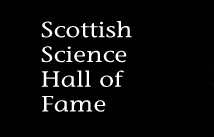James Clerk Maxwell (1831-1879)
James Clerk-Maxwell : [obituary]
338
Proceedings of the Royal Society
sing the whole substance of a question into a few clear and compact
sentences than Maxwell exhibits in his verses. As an exceedingly
good example of his style we may quote the lines written for the
portrait of Cayley, now in Trinity College, Cambridge.
“ O wretched race of men, to space confined !
What honour shall ye pay to him whose mind
To that which lies beyond hath penetrated ?
The symbols he hath formed shall sound his praise,
And lead him on through unimagined ways
To conquests new in worlds not yet created.
“ First, ye determinants in ordered row
And massive column ranged before him go,
To form a phalanx for hia safe protection.
Ye powers of the nth roots of – 1,
Around his head in endless cycles run,
As disembodied spirits of direction.
“And you ye undevelopable scroles,
Above the host wave your emblazoned rolls,
Ruled for the record of his bright inventions.
Ye cubic surfaces, by threes and nines,
Draw round his camp your seven-and-twenty lines,
The seal of Solomon in three dimensions.
“ March on, symbolic host, with step sublime,
Up to the flaming bounds of space and time;
There halt, until, by Dickenson depicted
In two dimensions, we the form may trace
Of him whose mind, too large for vulgar space,
In n dimensions flourished unrestricted.”
Other exquisite specimens are given in “Nature:” especially
good is his “ Lecture to a Lady on Thomson’s Reflecting Galvano-
meter.” One of the few others which have been printed was secured
by John Blackwood for his Magazine, where it appeared under the
title “British Association, 1874,” in November of that year.
It is to be hoped that these scattered gems may be collected and
published, for they are of the very highest interest, as the work
during leisure hours of one of the most piercing intellects of modern
times. Every one of them contains evidence of close and accurate
thought, and many are in the happiest form of epigram.
I cannot adequately express in words the extent of the loss which
his early death has inflicted not merely on his personal friends, on
this Society, on the University of Cambridge, on the whole scientific
world, but also, and most especially, on the cause of common sense,

![James Clerk-Maxwell : [obituary] - Page 338](https://deriv.nls.uk/dcn4/7449/74491732.4.jpg)
